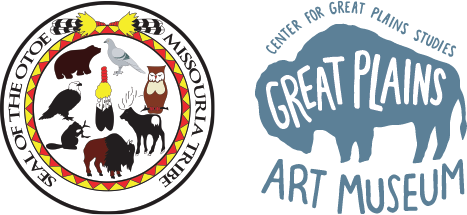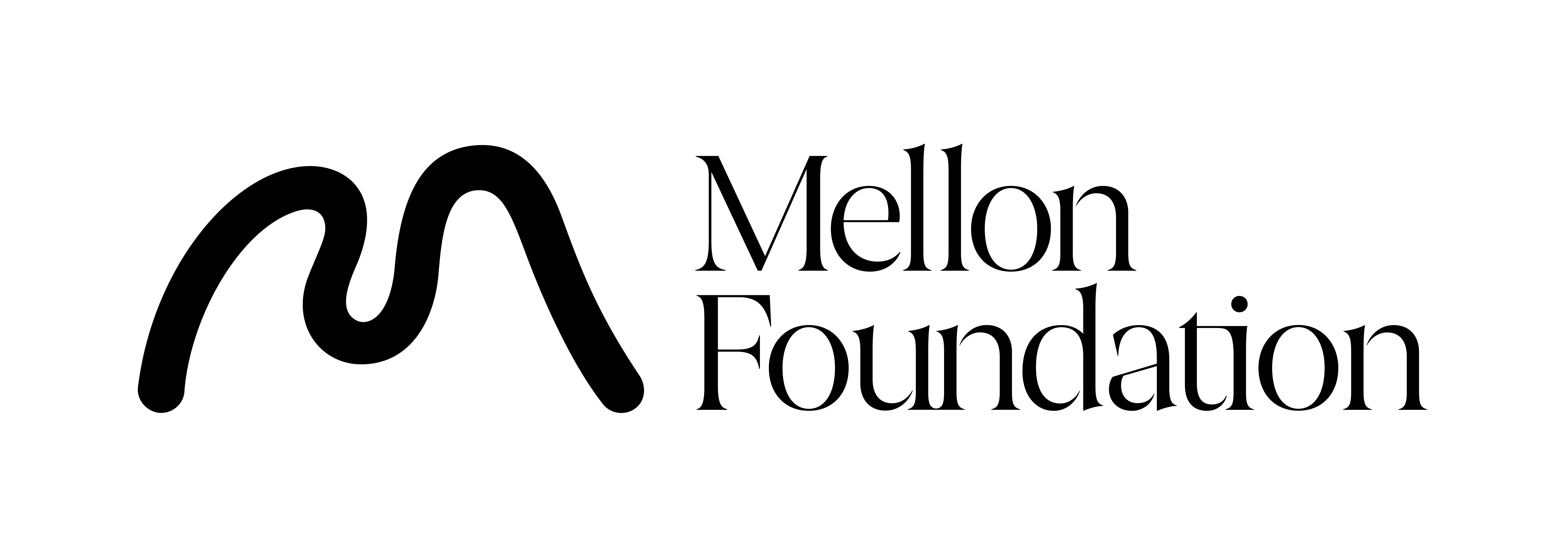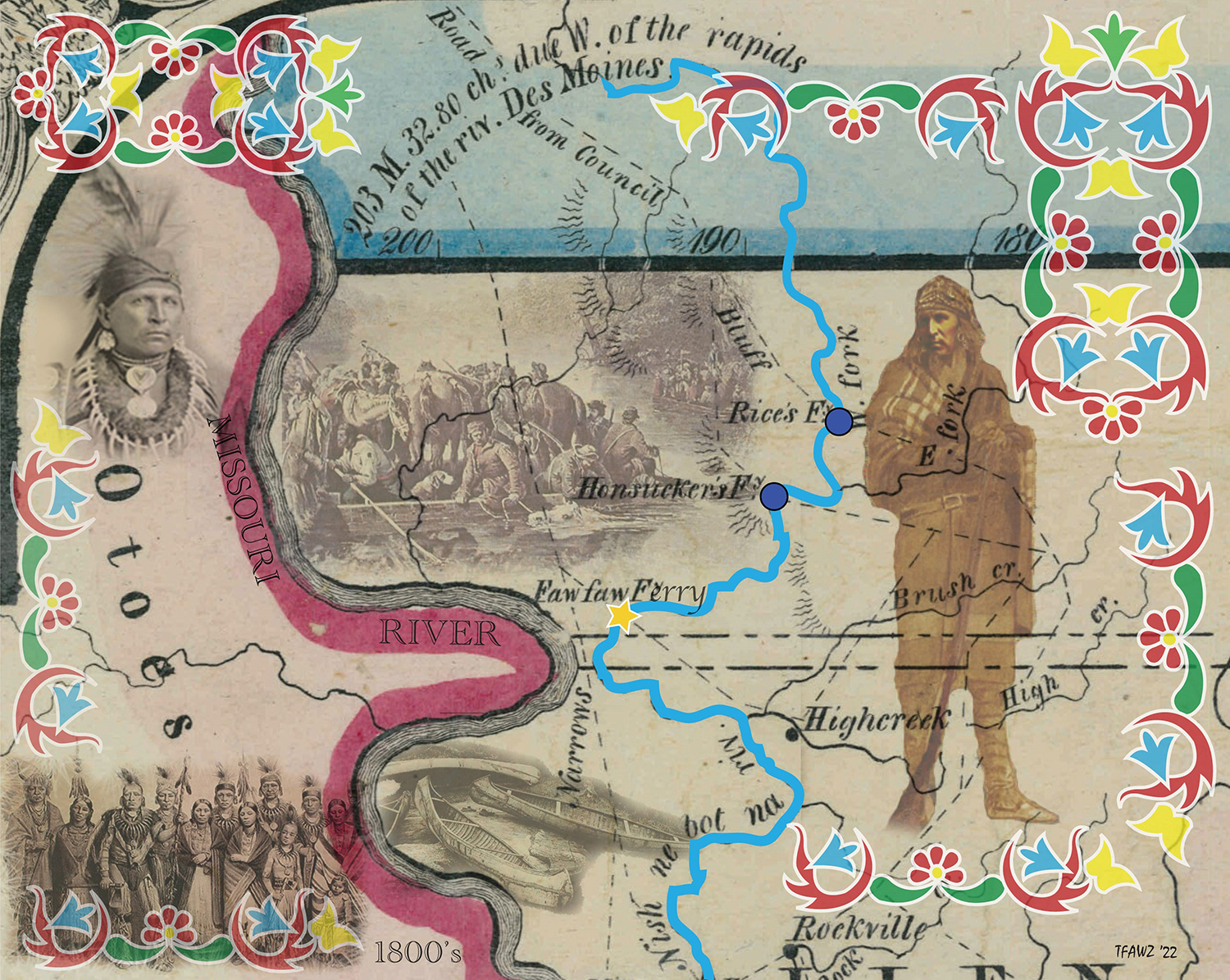
Re-Indigenizing Southeast Nebraska
The University of Nebraska is a land-grant institution with campuses and programs on the past, present, and future homelands of the Pawnee (Panyi), Ponca (Pąnką), Otoe-Missouria (Jiwere-Nutachi), Omaha (Umoⁿhoⁿ), Dakota and Lakota (Sąhą), Kaw (Kąnða), Cheyenne (Sąhį), and Arapaho (Arapahu) Peoples, as well as those of the relocated Ho-Chunk (Ho Tąnge), Sac (Ðake) and Fox (Misdeke), and Iowa (Baxoje) Peoples.
Walking in the Footsteps of our Ancestors (Ahadada Wathigre Hįnéwi Ke) is a joint project of the Center for Great Plains Studies and the Otoe-Missouria Tribe of Oklahoma that aims to promote healing and reconciliation in southeast Nebraska by reconnecting the Otoe-Missouria to their homelands and educating non-Native people about the history and ongoing presence of the Tribe and other Indigenous peoples in our region.
The three-year project will:
- Survey (uruxije) the current commemorative landscape in southeast Nebraska
- Bring together (agí'ąnye) the city of Lincoln, UNL, and the Otoe-Missouria nation to co-create new land- and relationship-based commemorations of Native peoples of the area
- Document our process through film (į́nje wáwagaxe mányi 'ų) and other media to serve as a model for other communities.
The project builds on the partnership that the Center’s Reconciliation Rising project initiated with the Otoe-Missouria in 2022. Since then, the Center has hosted an annual Otoe-Missouria Days on Sept. 21, which welcomes the Tribe home to the Lincoln area on the day their nation ceded the land that became our city and university.
The project will be guided by co-directors Margaret Jacobs, historian and director of the Center for Great Plains Studies, and Christina Faw Faw (Otoe-Missouria), an educator, historian, and linguist who has served as the Indian Education Director for Frontier Public Schools in Red Rock, Okla., as Language Coordinator and Instructor for the Otoe-Missouria Tribe, and as a Tribal Education Specialist for the National Indian Education Association.
Activities during the first year of the project include a survey of area residents, an audit of current commemorations, the Confronting the Legendary Great Plains conference, the Decolonizing Museums lecture series in spring 2024, the third annual Otoe-Missouria Day, the Contemporary Indigeneity exhibition at the Great Plains Art Museum in Fall 2024, and updating commemorative signage in area parks and roadsides.
Sign up for the project newsletter

The Center for Great Plains Studies and the Otoe-Missouria Tribe were awarded a three-year, $1.58 million grant to launch the project. This project is funded by the Andrew W. Mellon Foundation, the nation’s largest supporter of the arts and humanities. Since 1969, the Foundation has been guided by its core belief that the humanities and arts are essential to human understanding. The Foundation believes that the arts and humanities are where we express our complex humanity, and that everyone deserves the beauty, transcendence, and freedom that can be found there. Through our grants, we seek to build just communities enriched by meaning and empowered by critical thinking, where ideas and imagination can thrive. Learn more at mellon.org.

"In the Jiwere-Nut'achi Ich'e (Otoe-Missouria Language) there are different ways to express thankfulness. To the Mellon Foundation, the University of Nebraska and the Center for Great Plain Studies, and my Otoe-Missouria Tribe, I say Warigroxiwi ki! - which literally means I pray for/to you all, and is the most formal heartfelt “Thank You” which can be expressed. I believe this project has the power to create lasting connections between the people and communities of Southeastern Nebraska and our Jiwere-Nut'achi people in Oklahoma and throughout the world. Warigroxi ki!"
— Project co-director Christina Faw Faw Goodson
— Otoe-Missouria Chairman John Shotton
Partners
Otoe-Missouria Tribe of Oklahoma
(Jiwere-Nut'achi Wosgą Wokigo)
City of Lincoln
Public Art Lincoln
Solidago Conservancy
The Nature Conservancy Nebraska
Wachiska Audubon Society
Spring Creek Prairie Audubon Center
Friends of Wilderness Park
Prairie Pines Partners
UNL School of Global Integrative Studies
UNL College of Architecture Professors
Deer Woman Productions
Lincoln Parks & Recreation
From Lincoln Mayor Leirion Gaylor Baird
"We are honored to be a part of the Walking in the Footsteps of our Ancestors collaboration between our partners at the University of Nebraska-Lincoln’s Center for Great Plains Studies and our friends and neighbors from the Otoe-Missouria Tribe of Oklahoma. The City of Lincoln supports the Otoe-Missouria Tribe by acknowledging that our city is on its ancestral lands. This new collaboration will build on that support by helping to engage Lincoln residents and visitors around the important history and ongoing contributions of our Native peoples. We are grateful to the Mellon Foundation for their support of this vital project."
Otoe-Missouria Day 2023

Throughout this page, you'll find words in parentheses that translate English into Jiwere, the Otoe-Missouria language.
About the name Nebraska: Nyi Bráske is the older term from which the state of Nebraska derives its name. As with English, Jiwere changes as well. Nyi Bráthge is what listeners will hear more often today. Nyi means water while brathge/braske means flat. Therefore, flat water or the name that predates the current Platte River.
Artwork: The Origins of ‘Faw Faw’
© Tamara Faw Faw. Used by Permission.
Media coverage: